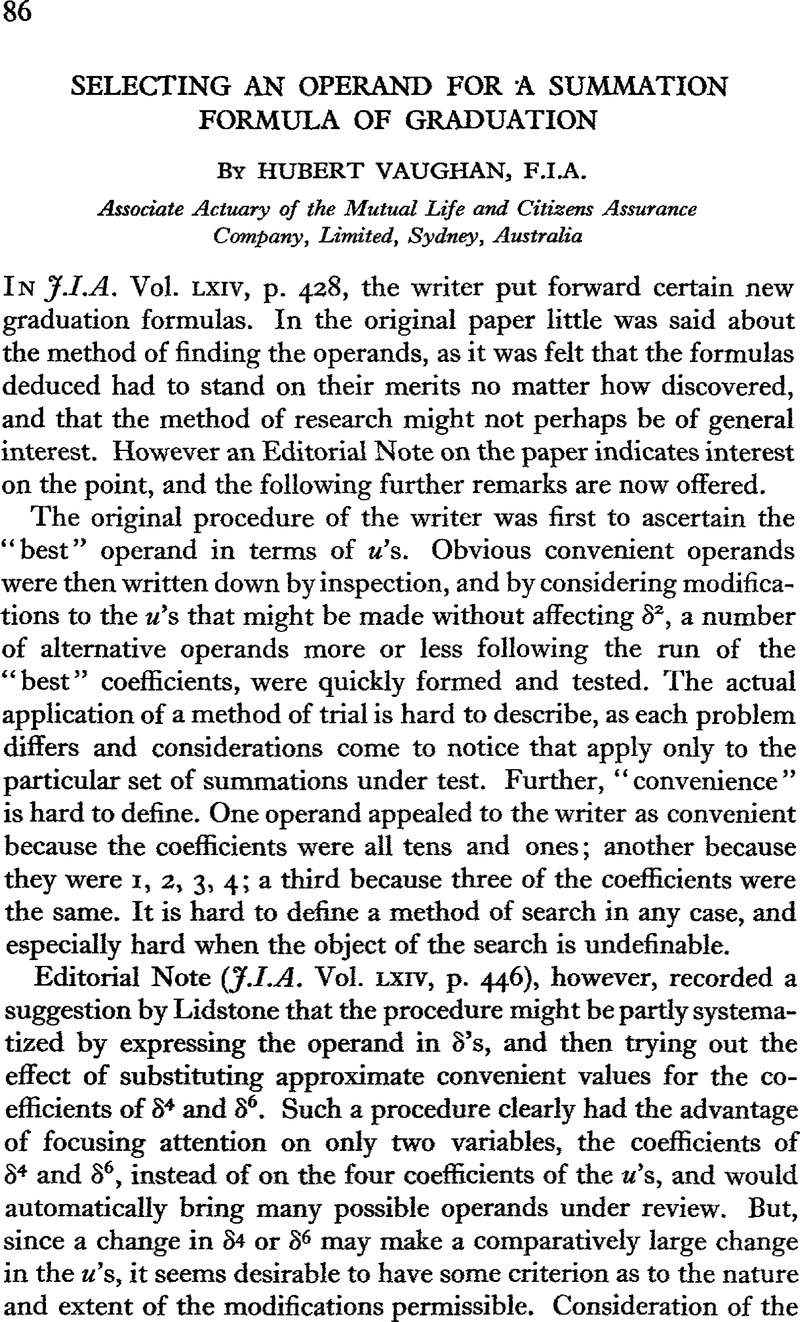Published online by Cambridge University Press: 18 August 2016

page 87 note * The notation δt where t is even, for the tth central difference is now very usually adopted–see Freeman's Actuarial Mathematics, p. 79–and it was used in this sense in the Editorial Note to Mr Vaughan's previous paper, J.I.A. LXIV, 446–8. It should be noted that in Mr Lidstone's paper on the same subject, J.I.A. XLII, 115 et seq. [1908], δ was used to denote the ordinary advancing difference for the interval unity, and the further operator (1+δ)−(t−x)/2conjoined to make the differences central. (JT. EDS.)
page 88 note *
See, for example,
Williamson's,
Diff. Calc. Chap, x
Google Scholar, where our case, with different notation, is worked out as an example. In order that the stated values of X and Y may actually correspond to a minimum, Lagrange's conditions must be fulfilled, viz. (1) A positive, which is evidently the case, and (2) ![]() positive, or 4AC − E2
positive. Now the last expression is
positive, or 4AC − E2
positive. Now the last expression is ![]() and it may be shown that this equals
and it may be shown that this equals ![]() which is essentially positive unless all the x's are equal and all the y's equal.
which is essentially positive unless all the x's are equal and all the y's equal.
page 88 note †
The second form shows that the expression takes its least value, ![]() . This result is used on p. 89.
. This result is used on p. 89.
page 89 note * See 2nd f.n. on p. 88.
Please note have been issued for this article.